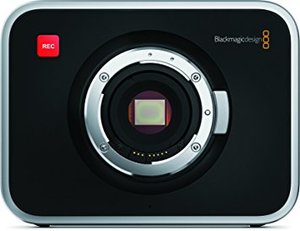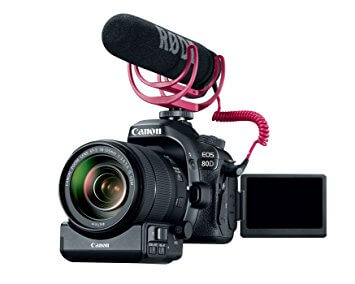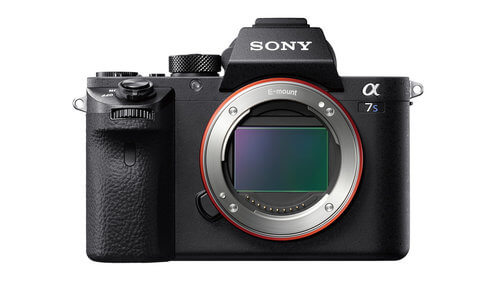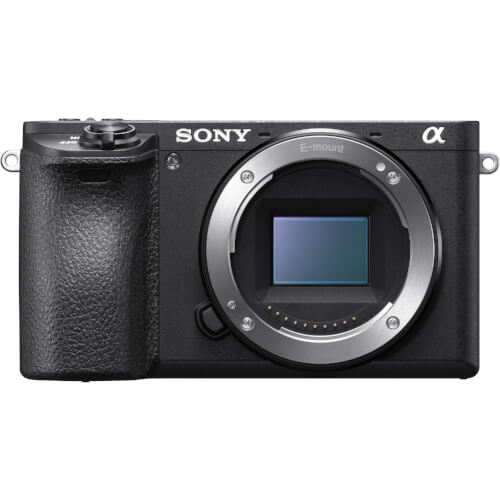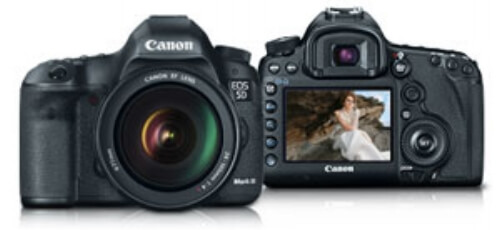Best Film Schools in New York City
Often, I get asked, “Do I need to go to a film school in New York City?”
In my humble opinion, it certainly helps. Film schools allow you to build a network of contacts in the industry. You learn a lot about film production. And most of all, it’s fun! Especially if you are a film lover and enjoy watching movies with a critical eye.
As a video production professional, I don’t have a formal film degree. However, I have taken many courses (and continue to do so) so that I can be up-to-date in my ability to work with the top filmmaking cameras and the right lenses for the job. With that said, if you are considering going to film school in New York City, then you’ve come to the right place.
New York is an eclectic place that has produced some of the best filmmakers, actors and directors in the history of cinema. New York has a great community of filmmakers, and it is the home to amazing institutions for the aspiring filmmaker.
Here’s a short list of the best film programs in the Big Apple:
New York University Film School (Tisch)
NYU has a commendable acceptance rate slightly above the 30% mark and requires a minimum entry cutoff encompassing a high school GPA and an SAT/ACT score ranging between 1250 to 1480 and 29 to 33 respectively. More specifically, the SAT range should include Math scores between 630 and 760, reading scores between 620 and 720 and writing scores averaging 630 to 730. Submitting applications early has been shown to boost chances of admission and the application charges stand at $70.
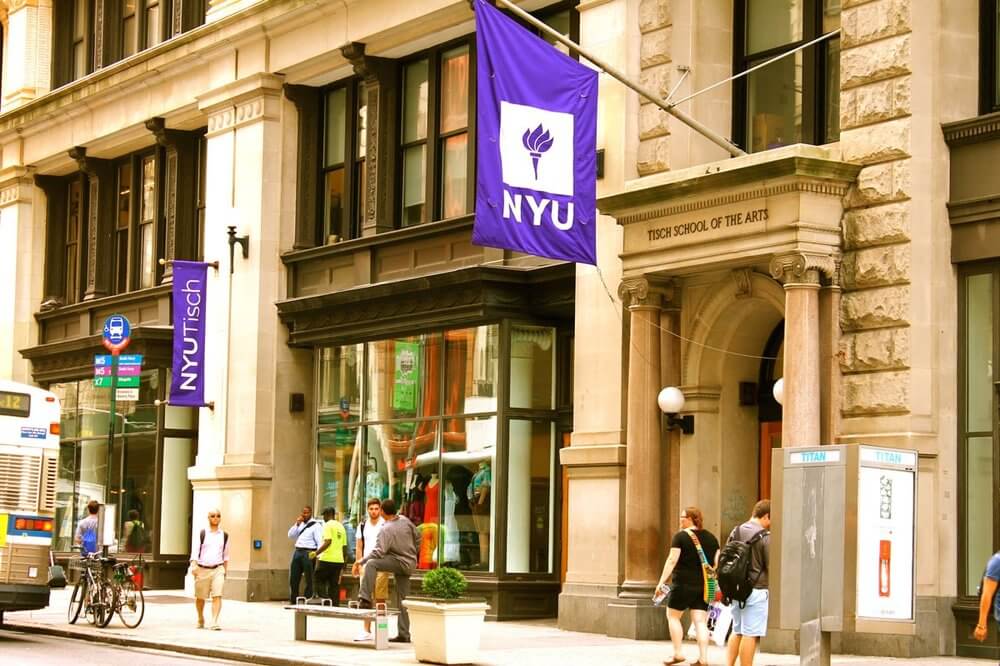
(PHOTO FROM NYU.EDU)
Recent polls have figures showing that 61% of those who applied to the film school described the admission process as caring in that the school did really care for those who wanted to pursue a career in filming.
A further 9% agreed that the process was very detailed and evaluated them on an individual front rather than as a crowd like most colleges do.
Courses offered
The NYU Film School offers a number of effective and prestigious courses namely:
Graduate film program
This program spans the length of three years with the possibility of an extra year if you elect to do your thesis after that period.
The first year covers many technical aspects in line with editing, acting, writing, shooting, producing and directing at the end of which the students submit a trio of short films for evaluation.
The second affords greater freedom as it allows the students to hone their own filmmaking instincts under the watchful eye of an experienced faculty. At the end of the last semester, the student can decide to specialize in a preferred niche. Finally, the third year allows the student to formulate a thesis after concentrating on an area of choice before they round off the curriculum with graduation.
Design for stage and film course
The Master of Fine Arts degree program is much similar to the later however it is more inclined toward stage and film. It is a three-year course that touches on various niches encompassing all sorts of media and performing arts and this diversity allows the student to grasp the countless opportunities afforded by the unique cultural resources in the city.
More specifically, this degree is meant to allow the student to explore the subject of film design and other related topics.
BFA in Film and Television-BS in Business
The school also offers a dual course degree that integrates a Bachelor of Science in Business and a Bachelor of Fine Arts in Film and Television with the entirety of the course totaling up to 10 semesters or 5 years.
It is an excellent option for those interested not just in the film and television aspect of the industry but also in the economic point of view of the same.
Cinema studies
Cinema studies courses in NYU are generally divided into four tiers with each level providing a certain depth of knowledge and unique approach to the art of filmmaking, journalism, network television and screenwriting.
It also studies the exploits of past talents and the history of various techniques. The degree programs for this niche include a BA of film studies, MA and a PhD course.
MIAP course The Masters of Arts in Moving Image Archiving and Preservation (MIAP) program entails the study of the collection and preservation or management of digital, video, film and multimedia works.
It is a 2-year course integrated program that is provided by the institute’s Department of Cinema Studies that lies within the jurisdiction of the renown Kanbar Institute of Film and Television.
Overall ranking
The NYU Film School features among some of the best schools New York City has to offer with reputable college review websites such as niche.com giving the institution a nod of approval in almost every area.
The school gets all the marks when it comes to academics and diversity while it also does commendably well with regards to value, location and the teaching experience.
Student life, safety and the menu have also been praised with the only downfall being that the institution doesn’t lay too much emphasis on physical activity or athletics.
Nonetheless, it makes for an excellent film school that can turn a diamond in the rough into a glittering gem. It is definitely one to consider if you are thinking of going down the film career path.
Recent polls have figures showing that 61% of those who applied to the film school described the admission process as caring in that the school did really care for those who wanted to pursue a career in filming.
A further 9% agreed that the process was very detailed and evaluated them on an individual front rather than as a crowd like most colleges do.
Courses offered
The NYU Film School offers a number of effective and prestigious courses namely:
Graduate film program
This program spans the length of three years with the possibility of an extra year if you elect to do your thesis after that period.
The first year covers many technical aspects in line with editing, acting, writing, shooting, producing and directing at the end of which the students submit a trio of short films for evaluation.
The second affords greater freedom as it allows the students to hone their own filmmaking instincts under the watchful eye of an experienced faculty. At the end of the last semester, the student can decide to specialize in a preferred niche. Finally, the third year allows the student to formulate a thesis after concentrating on an area of choice before they round off the curriculum with graduation.
Design for stage and film course
The Master of Fine Arts degree program is much similar to the later however it is more inclined toward stage and film. It is a three-year course that touches on various niches encompassing all sorts of media and performing arts and this diversity allows the student to grasp the countless opportunities afforded by the unique cultural resources in the city.
More specifically, this degree is meant to allow the student to explore the subject of film design and other related topics.
BFA in Film and Television-BS in Business
The school also offers a dual course degree that integrates a Bachelor of Science in Business and a Bachelor of Fine Arts in Film and Television with the entirety of the course totaling up to 10 semesters or 5 years.
It is an excellent option for those interested not just in the film and television aspect of the industry but also in the economic point of view of the same.
Cinema studies
Cinema studies courses in NYU are generally divided into four tiers with each level providing a certain depth of knowledge and unique approach to the art of filmmaking, journalism, network television and screenwriting.
It also studies the exploits of past talents and the history of various techniques. The degree programs for this niche include a BA of film studies, MA and a PhD course.
MIAP course The Masters of Arts in Moving Image Archiving and Preservation (MIAP) program entails the study of the collection and preservation or management of digital, video, film and multimedia works.
It is a 2-year course integrated program that is provided by the institute’s Department of Cinema Studies that lies within the jurisdiction of the renown Kanbar Institute of Film and Television.
Overall ranking
The NYU Film School features among some of the best schools New York City has to offer with reputable college review websites such as niche.com giving the institution a nod of approval in almost every area.
The school gets all the marks when it comes to academics and diversity while it also does commendably well with regards to value, location and the teaching experience.
Student life, safety and the menu have also been praised with the only downfall being that the institution doesn’t lay too much emphasis on physical activity or athletics.
Nonetheless, it makes for an excellent film school that can turn a diamond in the rough into a glittering gem. It is definitely one to consider if you are thinking of going down the film career path.
Fordham University
Fordham University ranks highly when it comes to top film schools not just in New York but in the country at large.
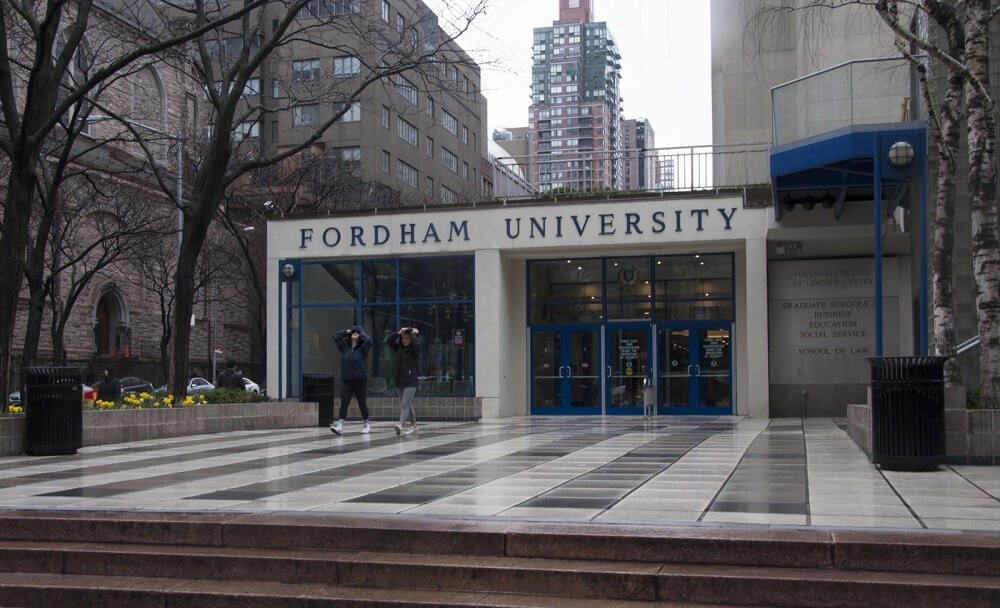
University overview and admission
Fordham University was founded in the mid 18th century and is more popularly known for its school of Law that was the country’s pioneer Fashion Law Institute but its Film department is also held in similarly high regard. The institution’s tuition fees roughly averaged about $50,601 for the 17/18 calendar year.
For you to gain admission, you must have a GPA score no less than 3.94 which features somewhere above average. 1340 is the mean SAT score that’ll get you through the door but a score above 1891 is sure to boost your odds of success exponentially. With a score of 2030, your place will be as good as assured if your GPA average is around the region stated above. With regards to admission, the success rate stands just 2% off the halfway mark which means that for every 50 people who apply, 24 are bound to be accepted.
Courses offered
Fordham’s communication and media studies department offers the following intriguing and essential courses:
Film and Television major (Undergraduate program)
Undoubtedly one of the most important courses in the film school, this program tackles a vital aspect of media with regards to unique and distinct industrial and artistic elements.
It borrows a leaf from the vast field of creative, theoretical and historical practices as it aims to equip learners with a good mastery of the tools necessary for success in an ever-changing media environment.
The Film and Television major allows for a more in-depth look at either television or film and is imbued with courses best suited to each branch and also with important bridging courses that find the common grounds between both areas. In a nutshell, this major allows students to concentrate on film or television production and writing or both while also allowing those seeking to delve into theoretical, historical and critical concerns to do so.
Fordham also offers a minor in Film and Television.
Journalism major
This major seeks to turn journalism desire and passion into palpable skill with the mic and camera. It aims to produce a breed of reporters who can drive the digital age forward by satisfying the requirements of the masses.
Moreover, the program covers advanced, intermediate and introductory lessons on reporting with a view to propagating a professional class of writing, digital content production and reporting.
The course will also highlight other related aspects such as social media and will give the student an opportunity to ply their trade at a local broadcast station or publication within the campus.
At the end of the course, students will be able to comprehensively analyze media performance and understand how the media pushes agendas in the US and worldwide.
Digital Technologies and Emerging Media major
Simply known as DTEM, this program revolves around the internet and auxiliary technologies. It builds upon various media studies research on social sciences such as political science, anthropology, sociology and psychology whilst also incorporating a dash of humanities and fine arts.
Also, the major seeks to develop a culture of critical thinking and entails the scrutiny of rising technologies like mobile apps, social media, video games etc from a writing and production point of view.
Communication and culture
This hybrid major brings together humanistic and social science outlooks on mediated communication and human communication. It is tailored to communication techniques, tools and theories and also casts a glance on the industries and institutions involved in the creation and transmission of media content as well as the reception relationship of such content.
In simple terms, the major aims to fashion media figures who can effectively and responsibly use the channels of mediated communication by not only becoming ethical producers but also critical consumers.
Verdict
Fordham sat at 61 on 2018’s list of the best universities in America with the school even making it to the top thirty when it came to film school ranking.
In New York, it is without a shadow of a doubt among the finest film schools the city has to offer. If you see yourself with a career in filmmaking, this is the right place for you.
New York Film Academy
Academics Overview
NYFA has a commendable faculty-student ratio of about 13:1 which affords greater attention at an individual level. The school’s acceptance rate is quite high and the application fee stands at $ 65 or $50 depending on the type of the program you are applying for as well as its duration.
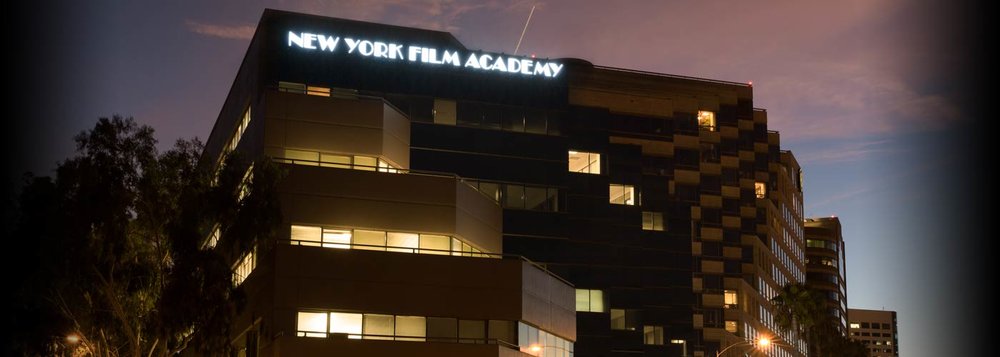
What’s more, the school has set the entrance bar sufficiently high enough to accommodate a majority of the applicants. With regards to service provision, 85% of polls at recognized niche.com deemed the teaching to be effective with the entire count voting positively on program diversity and manageability.
Courses offered
The institution offers a plethora of long-term and short duration courses in various areas and this is the reason the school is held in high regard within and without the borders. Some of the programs on offer include:
MFA in Filmmaking
The curriculum dives into important components of mainstream filmmaking branches such as editing, producing, screenwriting, directing and cinematography.
The film graduate program will involve 10 films throughout the entirety of the course in addition to a 90 to 120-page long script. These films will touch on various important aspects namely quarter film, continuity, Music & Montage Film, Mise-en-scène and MFA short film thesis just to name a few.
The goals of Master of Fine Arts in filmmaking entail learning the ins and outs of visual storytelling which hinges on postproduction sound design, cinematography, editing and directing. Also, the learner is expected to gain valuable knowledge in digital editing and digital video production.
MA in Film and Media production
The Master of Arts in Film and Media production is a program condensed to fit into one calendar year spanning the duration of three whole semesters.
It is molded to provide a professional yet hands-on experience to aspiring content makers and involves students working together on numerous projects cutting across different genres and formats.
This accelerated year-long course is capped off by a written thesis paper delving into the program’s themes and ideas that they have learnt so far.
The learning and production goals of the course encompass creative feedback, constructive editorial, short film production prowess and a detailed understanding of marketing and branding according to the thesis project.
BFA in Filmmaking
The Bachelor of Fine Arts in Filmmaking takes a unique point of view toward filmmaking and learning revolves around students studying by trying out filmmaking firsthand.
Students harness their skills in editing, producing, cinematography, directing and screenwriting and become familiar with working from 35 mm and RED Dragon to 16 mm and HD.
New York Film Academy also offers a Bachelor of Arts (BA) in filmmaking and the BFA option deviates from this by its more in-depth look at art training and study. While a third of the BA’s curriculum is made up of practice and study in fine arts with the remaining fraction afforded to general sciences and liberal arts, the ratios are reversed for the BFA which lays more emphasis on the former.
1 and 2-Year Conservatory Programs
The 1-year filmmaking program provides a complete filmmaking experience at the end of which learners are turned into competent filmmakers.
The conservatory involves more than 1000 hours of real production practice and hands-on guidance with the first semester entailing DSLR shooting and editing and the second and last semester focusing on shooting and production with a RED Scarlet HD camera.
A 2-year alternative tackles all the aforementioned technical aspects and many other vital elements of filmmaking covered shallowly in the 1-year option.
Film Workshops
New York Film Academy also has many short-term film workshops that are ideal for those keen on learning the trade in as little time as possible.
The courses include a 4-week filmmaking workshop, a 4-week music video workshop, a 2-day weekend directing workshop, a Reduction workshop, a 1-week and 3-week filmmaking workshop among many other options.
Verdict
New York Film Academy is among the best in the industry and to substantiate this, you just need to take a look at the long list of high-profile names that once called the academy home.
Shaquille O’Neal, Trevor Matthews and Damon Wayans are a few noteworthy examples in the overflowing list. If you are set on pursuing a niche in filming, this school affords an excellent stepping stone to greater things.
Coursehorse Film Classes
These film schools are expensive options. If you already have an undergraduate degree and want to explore the world of filmmaking, a good alternative would be Coursehorse . With Coursehorse, you can pick and choose what topics to cover. What’s great about them is they are thought by actual professionals who actually work as videographers or filmmakers in the Big Apple.

Coursehorse is not a learning institution in the typical sense because it is a company that solely affords an online platform to physical classes at specified locations in the city. Nonetheless, it still proves one of the most effective places to learn about filmmaking.
Courses offered
As mentioned before, Coursehorse is not a mainstream learning institution hence it doesn’t provide standard degrees and bachelor courses. Still, it does have a variety of useful Coursehorse film classes in NY which at the moment include:
REDucation
The venue for this course is 35th street in Brooklyn with the program aiming to roll out an immersive environment that covers the essentials of post-production and on-set filming while working with a professional RED brand.
The $1,500 course is covered in three sessions and is excellent for all skill sets alike from those starting out to already established professionals in the industry. REDucation is presented by industry professionals who are actively involved in the field.
Filmmaking for actors
This course is offered by industry veteran K. Lorrel Manning and spans a number of weeks totaling up to 11 sessions. Aspiring actors can learn the ropes of filmmaking by learning how to direct, act, write, and produce their own projects. More specifically, the course covers the basics of editing, shot setup among other important aspects of DIY filmmaking.
The course costs about $795 and is based in Hell’s Kitchen, Manhattan with the only requirements for eligibility being a camera-iPad/iPhone- any other will do as well- and a PC editing software.
Zeiss Cine Lens Certification
This is an intermediate level course that builds on basic Zeiss Lens knowledge which includes two available levels of certification. The first level discusses the essentials and other nitty-gritty while the second degree aims to learn more from a technician’s point of view with regards to proper lens utilization and maintenance.
The course is offered at $800 in Brooklyn by adept technicians with many valuable years between them working on lenses of this kind.
Green screen
Green Screen is basically a $200 special effects class based in Manhattan. The course offers in-depth and precise information on chroma keying to create characters, effects, backgrounds and other cinematic elements.
The workshop will also entail shooting on a green screen background then molding the canvas to a different form using Premiere. Other topics to be covered also include refining the cut, masking, medial management and manual keying.
Essentials of film acting 110
Priced at $ 48, this onscreen acting class takes places in Midtown, Manhattan and is geared at giving the learner a complete acting package.
It focuses on emotion, voice and physicality projection with the instructors also sharing some vital pointers on what they have learnt along the way. In the end, the last class will be an onscreen work displayed in a theatre to manager, directors and agents.
Docu Intensive
This course is to be taught in ten sessions covering how to produce the ultimate documentary in enthralling storytelling fashion. It affords a detailed workshop on all the processes involved during pre-production, the production itself and post-production.
Other topics that students will also learn about include refining and building a rough cut, organizing footage, coverage and storytelling elements and documentary style and form just to name a few. TriBeCa, Manhattan is the place to be for this course and $1,100 is the price to match.
Experiments in 16mm filmmaking
As is evident from its name, this course delves into the many image creation possibilities provided by a 16mm Bolex camera. The class fee stands at $1665 for a program that discusses topics such as experimental film’s historical background and shooting techniques such as matte shots, hand developing, optical distortion, double exposure etc.
It also lays bare ancient tips of in-camera effects among other useful pointers. The lesson is scheduled to take place in Manhattan.
Verdict
Coursehorse affords one of the cheapest yet highly effective means of learning precious aspects on filmmaking without having to break the bank. The company’s website is littered with all sorts of classes touching on different aspects which allows you to select what suits you best or those areas you are most interested in. It is hands down among the elite when it comes to top NYC film schools.
Summary
Film schools are expensive both in terms of cost and time. If you’re considering a film school in New York City, definitely do your due diligence. It’s a great city to learn filmmaking and videography. It’s not a comprehensive list but hopefully this article will help you with your research.
Above all else, keep writing and making videos. You learn best when you practice what you love!
2Bridges Productions Copyright © 2017. Address: 25 Monroe St, New York, NY 10002. Phone: 516-659-7074 – All Rights Reserved.
We are a participant in the Amazon Services LLC Associates Program, an affiliate advertising program designed to provide a means for us to earn fees by linking to Amazon.com and affiliated sites.

